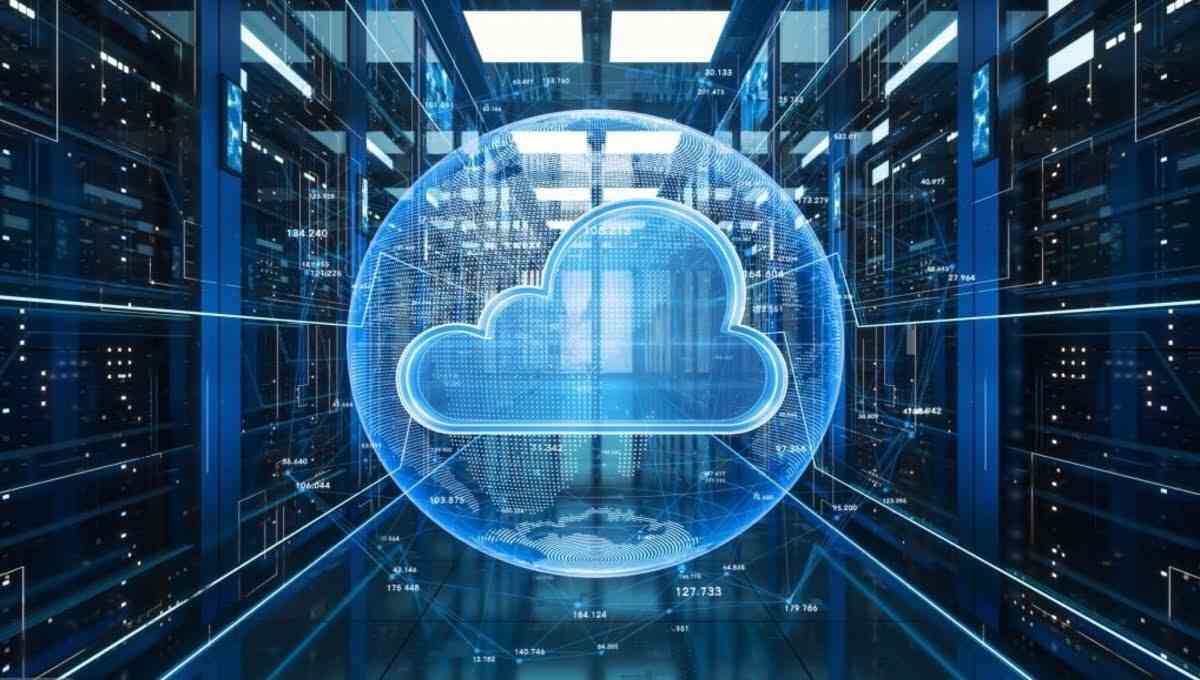CLOUD COMPUTING
Cloud Security in Cyber Security

Strong safeguards are essential in the constantly changing field of cybersecurity to protect sensitive data. One crucial aspect that is gaining prominence is cloud security. As businesses increasingly rely on cloud services, understanding the dynamics of cloud computing security becomes essential to fortifying defenses against cyber threats.
Understanding Cloud Security
Cloud security, in the realm of cybersecurity, refers to the set of policies, technologies, and controls implemented to safeguard data, applications, and infrastructure within cloud computing environments. It involves protecting information from unauthorized access, data breaches, and other cyber threats. The key components of cloud security include encryption, identity management, and network security.
Challenges in Cyber Security
The digital era brings about not only incredible advancements but also unprecedented challenges in terms of cyber threats. Traditional security methods often fall short of addressing the complexities of modern attacks. The perplexity lies in the ever-increasing sophistication of cyber threats and the burst of new attack vectors.
Role of Cloud Security in Cyber Security
Cloud security plays a pivotal role in addressing these challenges by offering a more comprehensive and dynamic approach to cybersecurity. It goes beyond the limitations of traditional security measures, providing a scalable and flexible solution to combat a wide array of cyber threats.
Why is cloud security important?
Nothing is more crucial than making sure that cloud environments are secure, even as more and more businesses are shifting their activities to the cloud. Maintaining the security of your data is crucial for maintaining corporate operations, adhering to legal requirements, and earning the trust of your clients.
Inadequate cloud security implementation puts the company at risk for catastrophic events, such as data breaches, financial losses, and even harm to its brand. Here are five reasons why cloud security is important in the modern world:
Some of the key areas of cloud security:
- Data security: This includes protecting data from unauthorized access, disclosure, modification, or destruction.
- Application security: This includes protecting applications from vulnerabilities that could be exploited by attackers.
- Network security: This includes protecting the network that connects cloud resources to each other and to the internet.
- Infrastructure security: This includes protecting the physical hardware and software that make up the cloud environment.
- Identity and access management (IAM): This includes managing who has access to cloud resources and what they can do with those resources.
- Compliance: This includes ensuring that cloud environments comply with applicable laws and regulations.
Cloud security is a shared responsibility between the cloud provider and the cloud customer. The cloud provider is responsible for the security of the underlying infrastructure, while the cloud customer is responsible for the security of their data, applications, and configurations.
Here are some best practices for cloud security:
- Use strong passwords and multi-factor authentication.
- Keep your software up-to-date.
- Segment your network.
- Use a firewall to protect your cloud environment from unauthorized access.
- Back up your data regularly.
- Monitor your cloud environment for suspicious activity.
- Educate your employees about cloud security best practices.
By following these best practices, you can help protect your cloud environment from cyberattacks.
Here are some of the benefits of cloud security:
- Reduced costs: Cloud security can help reduce the cost of security by providing economies of scale.
- Increased flexibility: Cloud security can be more flexible than traditional security solutions, making it easier to adapt to changing business needs.
- Improved scalability: Cloud security can be scaled up or down as needed, making it a cost-effective solution for businesses of all sizes.
- Enhanced compliance: Cloud security can help businesses comply with industry regulations.
Overall, cloud security is an important part of any cybersecurity strategy. By following the best practices outlined above, you can help protect your cloud environment from cyberattacks. share Google it, moreover
Is cloud security part of cybersecurity?
Yes, cloud security is a part of cybersecurity. Cybersecurity is the practice of protecting computer systems, networks, and data from unauthorized access, use, disclosure, disruption, modification, or destruction. Cloud security is a subset of cybersecurity that focuses on protecting cloud computing environments from cyberattacks.
Cloud computing is a popular and growing trend, and cloud environments are increasingly targeted by cyberattacks. This is because cloud environments offer a large attack surface as they contain a variety of sensitive data and applications. Cloud security is therefore essential for organizations that use cloud computing.
What is the difference between cloud security and cyber security?
Cloud security and cybersecurity are two closely related terms, but they have different meanings.
- Cybersecurity is the practice of protecting computer systems, networks, and data from unauthorized access, use, disclosure, disruption, modification, or destruction. This includes protecting data stored on-premises, in the cloud, or on mobile devices.
- Cloud security is a subset of cybersecurity that focuses on protecting cloud computing environments from cyberattacks. This includes protecting data, applications, networks, and infrastructure that are hosted in the cloud.
The main difference between cloud security and cybersecurity is the scope of protection. Cybersecurity protects all types of IT assets, while cloud security only protects assets that are hosted in the cloud.
Differences between cloud security and cybersecurity:
| Characteristic | Cloud Security | Cybersecurity |
|---|---|---|
| Scope of protection | Cloud computing environments | All types of IT assets |
| Responsibility | Shared between cloud provider and cloud customer | Organization’s responsibility |
| Key threats | Data breaches, unauthorized access, and denial-of-service attacks | Viruses, malware, ransomware, and phishing attacks |
| Best practices | Use strong passwords and multi-factor authentication, keep software up-to-date, segment your network, use a firewall, back up your data regularly, and monitor your environment for suspicious activity | Implement a layered security approach, educate employees about cybersecurity best practices, regularly scan for vulnerabilities, and patch security flaws |
Despite their differences, cloud security and cybersecurity are closely related. Organizations that use cloud computing need to implement both cloud security and cybersecurity measures to protect their data and assets from cyberattacks.
In Conclusion
Cloud security in cybersecurity is a dynamic and evolving field that demands continuous learning and adaptation. By understanding its intricacies and implementing robust security measures, individuals and organizations can harness the power of cloud computing without compromising their valuable digital assets.
FAQs of cloud security in cyber security
How does cloud security differ from traditional cybersecurity?
A: While traditional cybersecurity focuses on securing on-premises systems, cloud security deals with protecting data in virtual environments.
What role do employees play in cloud security?
A: Employees play a vital role by following security protocols, using strong passwords, and being cautious of phishing attempts.
Can I customize my cloud security measures?
A: Yes, cloud security can be tailored to meet your organization’s specific needs and requirements.
Is it safe to store sensitive data in the cloud?
A: Yes, with proper encryption and security measures, the cloud can be a secure place for sensitive data storage.

 FUNDAMENTAL2 months ago
FUNDAMENTAL2 months agoHow Cloud Computing Improving Customer Service Processes

 FUNDAMENTAL7 months ago
FUNDAMENTAL7 months agoWhat is cloud computing? A Comprehensive Guide

 FUNDAMENTAL4 months ago
FUNDAMENTAL4 months agoHow can Cloud Technology Help Small Businesses ?

 FUNDAMENTAL7 months ago
FUNDAMENTAL7 months agoEvolution of Cloud Computing : A Well-Explained

 CLOUD COMPUTING2 months ago
CLOUD COMPUTING2 months agoWhat Is VlAN and VSAN In Cloud Computing?

 FUNDAMENTAL2 months ago
FUNDAMENTAL2 months agoIaaS PaaS and SaaS in cloud computing

 FUNDAMENTAL2 months ago
FUNDAMENTAL2 months agoWhich is a fundamental attribute of cloud computing?

 CLOUD COMPUTING2 months ago
CLOUD COMPUTING2 months agoHow to Make Your Own Cloud Storage : A Step-by-Step Guide









